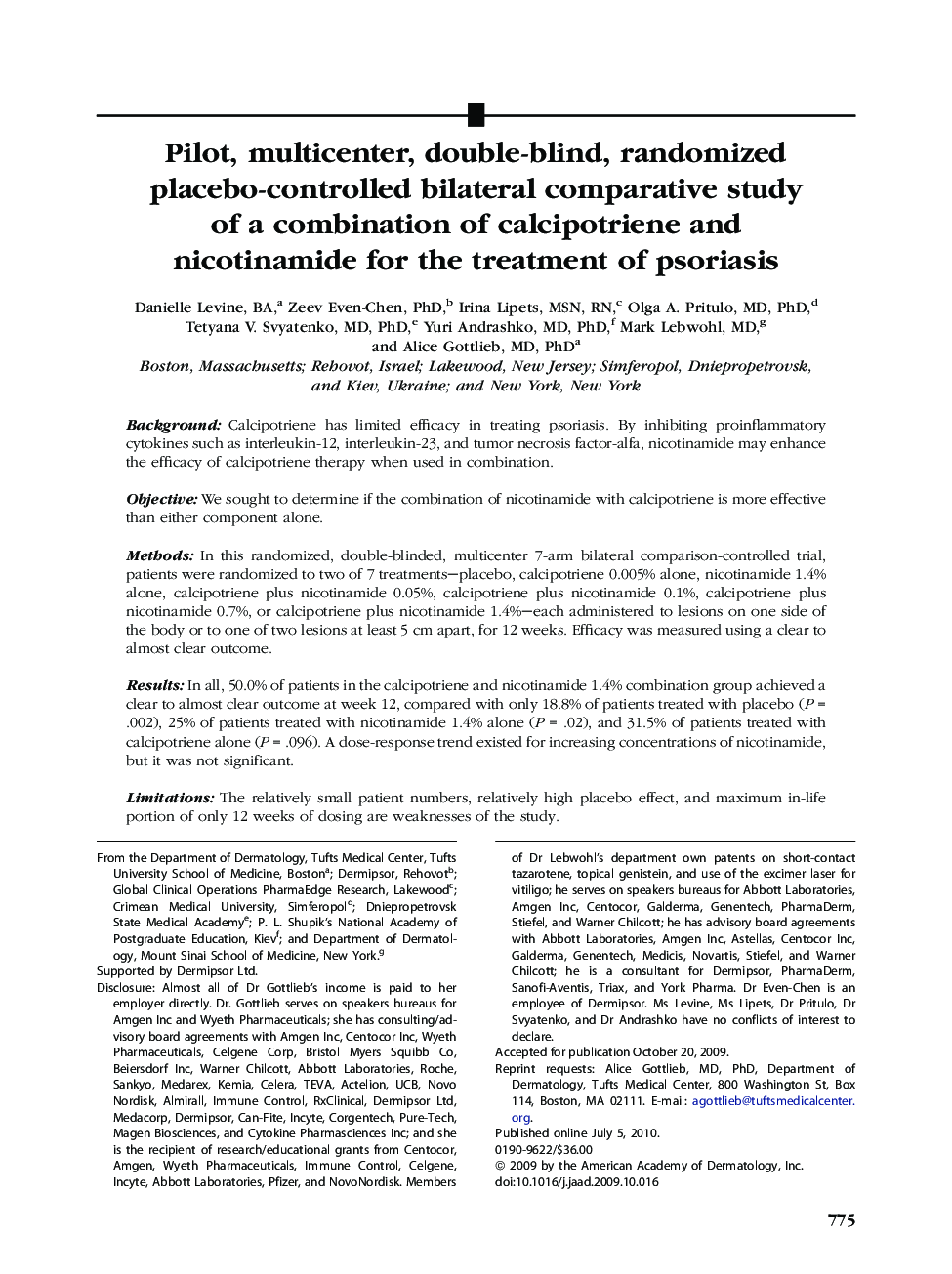| Article ID | Journal | Published Year | Pages | File Type |
|---|---|---|---|---|
| 3208845 | Journal of the American Academy of Dermatology | 2010 | 7 Pages |
BackgroundCalcipotriene has limited efficacy in treating psoriasis. By inhibiting proinflammatory cytokines such as interleukin-12, interleukin-23, and tumor necrosis factor-alfa, nicotinamide may enhance the efficacy of calcipotriene therapy when used in combination.ObjectiveWe sought to determine if the combination of nicotinamide with calcipotriene is more effective than either component alone.MethodsIn this randomized, double-blinded, multicenter 7-arm bilateral comparison-controlled trial, patients were randomized to two of 7 treatments–placebo, calcipotriene 0.005% alone, nicotinamide 1.4% alone, calcipotriene plus nicotinamide 0.05%, calcipotriene plus nicotinamide 0.1%, calcipotriene plus nicotinamide 0.7%, or calcipotriene plus nicotinamide 1.4%–each administered to lesions on one side of the body or to one of two lesions at least 5 cm apart, for 12 weeks. Efficacy was measured using a clear to almost clear outcome.ResultsIn all, 50.0% of patients in the calcipotriene and nicotinamide 1.4% combination group achieved a clear to almost clear outcome at week 12, compared with only 18.8% of patients treated with placebo (P = .002), 25% of patients treated with nicotinamide 1.4% alone (P = .02), and 31.5% of patients treated with calcipotriene alone (P = .096). A dose-response trend existed for increasing concentrations of nicotinamide, but it was not significant.LimitationsThe relatively small patient numbers, relatively high placebo effect, and maximum in-life portion of only 12 weeks of dosing are weaknesses of the study.ConclusionThis study provides evidence that using the combination nicotinamide and calcipotriene may provide additional benefit in the topical treatment for patients with psoriasis and may be an adequate steroid-sparing substitute treatment.
